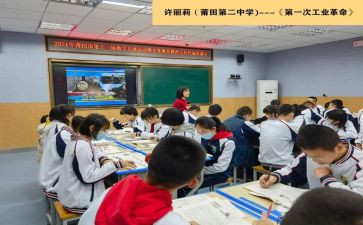对于教案的制定,一定要考虑到学生们的接受能力,教案其实就是教育工作者为开展教学工作所提前写出的书面文体,以下是总结网小编精心为您推荐的八年级英语上册教案7篇,供大家参考。

八年级英语上册教案 篇1
一、教学目标:
1.语言知识目标:
1)能掌握以下单词:anyone,anywhere,wonderful,quiteafew,most,something,nothing,everyone,ofcourse,myself,yourself
能掌握以下句型:
①—wheredidyougoonvacation?—iwenttothemountains.
②—wheredidtinatoonvacation?—shewenttothebeach.
③—didyougowithanyone?—yes,idid./no,ididn’t.
2)能了解以下语法:
—复合不定代词someone,anyone,something,anything等的用法。
—yourself,myself等反身代词的用法。
3)一般过去时态的特殊疑问句,一般疑问句及其肯定、否定回答。
2.情感态度价值观目标:
学会用一般过去时进行信息交流,培养学生的环保意识,热爱大自然。
二、教学重难点
1.教学重点:
1)用所学的功能语言交流假期去了什么旅行。
2)掌握本课时出现的新词汇。
2.教学难点:
1)复合不定代词someone,anyone,something,anything等的用法。
2)yourself,myself等反身代词的用法。
三、教学过程
ⅰ.lead-in
1.看动画片来进入本课时的主题谈论上周末做了些什么事情,谈论过去发生的事情。
ⅱ.presentation
1.showsomepicturesonthebigscreen.letssreadtheexpressions.
2.focusattentiononthepicture.ask:whatcanyousee?say:eachpictureshows
somethingapersondidinthepast.nameeachactivityandaskstudentstorepeat:
stayedathome,wenttomountains,wenttonewyorkcity6.wenttothebeach,
visitedmyuncle,visitedmuseums,wenttosummercamp
3.now,pleasematcheachphrasewithoneofthepicturesnexttothenameofthe
activity,pointtothesampleanswer.
4.checktheanswers.answers:1.f2.b3.g4.e5.c6.a7.d
iii.listening
1.pointtothepictureonthescreen.
say:lookatthepicturea.wheredidtinagoonvacation?shewenttomountains.
ask:whatdidthepersondoineachpicture?
2.playtherecordingthefirsttime.
3.playtherecordingasecondtime.
say:therearethreeconversations.thepeopletalkaboutwhatdidonvacation.listentotherecordingandwritenumbersofthenamesintherightboxesofthepicture.
4.checktheanswers.
iv.pairwork
1.pointoutthesampleconversation.asktwosstoreadtheconversationtotheclass.
2.nowworkwithapartner.makeyourownconversationaboutthepeopleinthepicture.
3.ssworkinpairs.astheytalk,movearoundtheclassroomandgiveanyhelptheyneed.
4.letsomepairsactouttheirconversations.
v.listening
1.tellsstheywillhearaconversationaboutthreestudents’conversations.listenforthefirsttimeandfillinthechart.thenlistenagainandcheckyes,orno.
2.letssreadthephrasesinthechartof2b.
3.playtherecordingthefirsttime.sslistenandfillinthechart.
4.playtherecordingasecondtimeforthesstocheck“yes,idid.”or“no,ididn’t.”
5.checktheanswerswiththess.
vi.pairwork
1.lettwossreadtheconversationbetweengrace,kevinandjulie.
2.letssworkinpairsandtrytorole-playtheconversation.
3.asksomepairstoactouttheirconversations.
vii.role-play
1.firstletssreadtheconversationandmatchthepeopleandplacestheywent.
2.letssactouttheconversationsinpairs.
3.someexplanationsin2d.
homework:
用英语询问你的一位好朋友,她(他)假期去了哪里?看到了什么?并将此对话写在作业上。
a:wheredidyougo…?
b:iwentto…
a:didyousee…
b:yes,idid./no,ididn’t.
板书设计:
sectiona1(1a-2d)
anyone,someone,everyone,something,anything,everything
yourself,myself
wheredidyougoonvacation?didyoudoanythingspecial?
iwenttonewyorkcity.didyougoanywhereinteresting?
wheredidshegoonvacation?mostofthetime
shewenttothemountains.
薪目标八年级上册英语教案
八年级英语上册教案 篇2
第一课时sectiona(1a~2d)
?学习目标】
1.学生学会形容词或副词比较级形式的构成及两者进行比较的一些常用词汇与句型。
2.通过听对人物的外表进行描绘、个性进行比较的对话,学生学会怎样就两者进行比较。
3.学生学会用比较级进行信息交流,增强自信心,多交益友,快乐生活,快乐学习。
?学习重点】
用所学的功能语言交流如何运用比较级描绘人物的外貌与个性。
?学习难点】
学习形容词和副词比较级的用法
learningactiontips:accordingtotheactualsituationofthestudentsinclass,createscenetoleadinthenewcoursebythewayofteacherandstudent\'squestionandanswer:
—whichoneismorehard-workingattheirlessons?—lisais.
andrevisetheadjectivesaboutdescribingtheappearanceandpersonalityofaperson.
learningactiontips:previewthewordsonpage17-18inthewordlist.studentsreadthewordsbyphoneticsymbols,thenunderlinenewwordsinthetextandmarkthechinesemeaning.atlastfinishthetaskin1a.
?知识链接】
clearlyadv.清楚地;清晰地;明白地
?拓展】
形容词后加上-ly常构成副词。eg:loud→loudly;quiet→quietly;serious→seriously;usual→usually;different→differently;real→really
friendlyadj.友好的
(1)friendly的比较级是morefriendly。
(2)befriendlytosb.对某人友好的。
?拓展】
某些名词后加上-ly可构成形容词。eg:month→monthly;mother→motherly;week→weekly;day→daily情景导入生成问题
1.t:whatdoyouthinkofyourbestfriend?
s:________________________________________________________________________
2.t:isshetallerthanyou?
s:________________________________________________________________________
自学互研生成能力
task1let\'sreadthenewwordsandthephrases.
1.icanread.(我会读)
outgoing,better,loudly,quietly,hard-working,competition,fantastic,which,clearly,win,though
2.icanwrite.(我会写)
翻译下列短语:
(1)敲鼓play__the__drums(2)长(短)头发long(short)__hair
(3)更外向more__outgoing(4)和……一样努力work__as__hard__as
(5)起得早get__up__early(6)跑得快run__fast
(7)歌咏比赛the__singing__competition
(8)最主要的事情the__most__important__thing
(9)学到新东西learn__something__new(10)玩得高兴have__fun
3.icansummarize.(我会总结)
形容词和副词比较级的变化规则:
(1)一般的在词尾加er
(2)以不发音的字母e结尾的词尾加r
(3)以一个辅音字母结尾的重读闭音节,先双写这个辅音字母再加er
(4)以辅音字母加y结尾先改y为i再加er
(5)多音节和部分双音节词在该词前面加more
(6)不规则的变化需要我们用心记忆
写出下列形容词或副词的比较级。
(1)longlonger(2)shortshorter(3)nicenicer(4)earlyearlier
(5)bigbigger(6)hothotter(7)thinthinner(8)easyeasier
(9)quietlymore__quietly(10)beautifulmore__beautiful(11)goodbetter
task2let\'slistentothetapeandfinish1b,2a,2b.
task3makeconversationsaninterview.
1.icanpractice.(我会练)
a:peter,(1)is__that__paul?
b:no,that\'stom.paulisthinnerthantom.
andhealso(2)has__longer__hair(更长的头发)thantom.
a:oh,(3)can__they__sing?
b:yes,theycansingwell.
a:(4)who__can__sing__better,paulortom?
b:tomsingsbetterthanpaul…
win
v.获胜;赢;赢得
n.winner获胜者
?辨析】
win与beat
两者均可作动词,意为“赢”,但用法不同:
(1)win(won,won)后接比赛、竞赛、战斗、奖品、钱等名词。
(2)beat(beat,beaten)后接竞争对手。
?导练】
(1)我们的队赢得了篮球比赛。ourteamwonthebasketballmatch.
(2)昨天乒乓球比赛我打败了内莉。ibeatnellyatping-pongyesterday.
task2
learningactiontips:
1.studentsturntopage17andlistentothetape,finishthelisteningtaskin1b.studentslistentothetapeagainandrepeat.
2.studentsturntopage18andlistentothetape,finishthelisteningtasksin2aand2b.thenstudentslistenagainandrepeat.
task3
learningactiontips:readaloudthedialoguein1c,2c,2d,studentsimitateandmakethedialogue,haveadialoguepracticewiththestructurein1c,2cand2d,andhaveaninterviewwithstudentsandreport.
?methodcoach】
听录音时,要求学生注意用笔标记:
(1)断句:“|”
(2)语调:升调?降调?
(3)重读单词:△
(4)不会认读的单词:____
模仿纯正的语音语调,朗读听力材料,培养学生的语言交际能力。
八年级英语上册教案 篇3
?学习目标】
1.学生学会关于假期去旅行的一些常用词汇与句型,并学会复合不定代词的用法。
2.通过与学生交流假期去哪里旅行的话题,提升学生的语言交际能力。
3.学生会用一般过去时态进行信息交流,形成环保意识,热爱大自然。
?学习重点】
学生能用所学的功能语言交流假期去了什么地方旅行。
?学习难点】
学习复合不定代词someone,anyone,something,anything等的用法。
learningactiontips:leadinginbyshowingpptaboutthestudents’holidaytrip.
topics:didyouhaveagoodtimeduringthevacation?yes,idid.didyougoanywhereinterestingwithyourparents?canyoutelluswhereyouwentonvacation?……reviewthepasttense.
task1
learningactiontips:previewthewordsonpage2inthewordlist.studentsreadthewordsbyphoneticsymbols,thenunderlinenewwordsinthetextandmarkthechinesemeaning.atlastfinishthetaskin1a.
?知识链接】
1.复合不定代词有:
某人someone
任何人anyone
没有人noone
每个人everyone
某事something
任何事anything
没有东西nothing
一切everything
2.anyone与anyone的区别
anyone通常指人,侧重于个体,后面不带of;anyone既指人,又指物,侧重于整体,后面可接of。情景导入生成问题
1.t:didyouhaveagoodtimeduringthevacation?
s:________________________________________________________________________
2.t:wheredidyougoonvacation?
s:________________________________________________________________________
自学互研生成能力
task1let\'sreadthenewwordsandthephrases.
1.icanread.(我会读)
anyone,anywhere,wonderful,quiteafew,most
2.icanwrite.(我会写)
翻译下列短语:
(1)待在家里stay__at__home(2)去纽约城go__to__new__york__city
(3)去夏令营go__to__summer__camp(4)与某人一起去go__with__someone
(5)buysomethingspecial买特殊的东西
(6)遇见有趣的人meet__someone__interesting
(7)studyfortests为考试学习
3.icansummarize.(我会总结)
didyoubuyanythingspecial?其中anything是不定代词。
复合不定代词用法小结:
(1)带some的复合不定代词常用于肯定句中;带any的复合不定代词常用于否定句或疑问句中。
(2)当形容词修饰不定代词时,应放在其后面。
(3)复合不定代词作主语时,都作单数看待,其谓语动词用第三人称单数形式。
(1)ididsomethinginterestinglastsummer.去年夏天我做了有趣的事情。
(2)didyougoanywherecoolonvacation?假期你去凉爽的地方了吗?
(3)在那里我没见到人。ididn’tseeanyonethere.
task2let\'slistentothetapeandfinish1b,2a,2b.
task3let\'smakeconversationsandinterview.
1.icanpractice.(我会练)
a:grace,wheredidyougoonvacation?
b:iwentto(1)central__park(中央公园).
a:oh,really?didyougowithanyone?
b:no.no__one(没有人)washere.everyonewasonvacation.
a:didyoubuy(3)anything__special(特殊的东西)?
b:no.iboughtnothing.
?导练】
(c)didyousee______inthediningroom?
a.someoneb.someone
c.anyoned.anyone
task2
learningactiontips:
1.studentsturntopage1andlistentothetape,finishthelisteningtaskin1b.studentslistentothetapeagainandrepeat.
2.studentsturntopage2andlistentothetape,finishthelisteningtasksin2aand2b.thenstudentslistenagainandrepeat.
?methodcoach】
听录音时,要求学生注意用笔标记:
(1)断句:“|”
(2)语调:升调?降调?
(3)重读单词:△
(4)不会认读的单词:____
模仿纯正的语音语调,朗读听力材料,培养学生的语言交际能力。
task3
learningactiontips:studentsreadaloudthedialoguein1c,2cand2d,makedialoguesandhaveaconversationpracticewith“—wheredidyougoonvacation?—iwentto…”.theninterviewclassmatesandhaveareport.
?备注】
2.icanmakeconversations.(我会编对话)
你能结合课文1c,2c及2d的内容编写对话来介绍自己假期活动的情况吗?运用句型wheredidyougoonvacation?didyougowithanyone?
a:lily,where__did__you__go__on__vacation?
b:i__went__to__the__beach.
a:sounds__great!did__you__go__with__anyone?
b:yes,i__went__there__with__li__lei.
3.icaninterviewandreport.(我会采访和汇报)
oralreport:inourgroup/class,wangyangwenttothecountrysidewithhermotheronvacation.guohuiwenttothemountainswithhisclassmatesonvacation.theyhadagoodtime.butmashiyididn’tgoanywhereonvacation.shehadtostayathomeandlookafterhersickgrandma.
交流展示生成新知
preshow:showingroups.(time:sixminutes)
task1:firstreadthewordsandphrasesingroups,thenreadtogetherandsumuptheusageofthewordsingroups,markthedifficultwordsinpronunciationandunderstanding(studentscanaskteacherforhelp).atlast,writethemontheblackboard.
task3:firstdiscussandchecktheanswersoftask3ingroups,thendiscussandsetscenestoperformthedialogues,interviewclassmatesabouttheholidayactivities.atlast,writethemontheblackboard.
promotionshow:classshow.(time:sixteenminutes)
task1:1.icanread.(1)readtogether,payattentiontothepronunciationof“wonderful”;(2)consolidatethewordsbywordgames.
2.icanwrite.(1)translatethephrasesintoenglishorchinesebyansweringquickly;(2)readtogether;(3)spottest:consolidatetheusageofthephrasesbymakingsentences.
3.icansummarize.(1)sumuptheusageofthecompoundindefinitepronounwiththephrasesin“icanwrite”;(2)spottest:consolidatetheusageofthecompoundindefinitepronounwiththeexercises,thenchecktheanswersbyansweringquicklyandexplain.
task3:1.icanpractice.(1)choosesomestudentstotranslatethekeysentencesintask3;(2)readtogether.
2.icanmakeconversations.(1)makedialoguesaccordingtothetask;(2)setscenestoperformthedialogues;(3)questionstudentsrandomlyaccordingtothedialogues.
3.icaninterviewandreport.(1)interviewstudentswiththestructure“wheredidyougoonvacation?”,showthemontheblackboardindiagram;(2)reporttheholidayactivitiesinoral.
当堂演练达成目标
根据句意和汉语提示填写单词。
1.thisquestionisveryeasy.everyone(每个人)cananswerit.
2.didyougoanywhere(任何地方)quiet?
3.huangguoshuwaterfallwasverywonderful(绝妙的).
4.tonyhasafew(一些)storybooks.
5.most(大多数)ofthestudentsinourclasslikesports.
课后反思查漏补缺收获:________________________________________________________________________存在困惑:________________________________________________________________________
八年级英语上册教案 篇4
教学目标
通过本单元的学习,学生们应会:“年月日”(dates,monthsandyears)和“季节”(seasons)的表达,以及不同季节的特点、自然现象的描述等。
学会1—12月份和的四季英语名称,以及1—31的序数词。有关各国季节的变化,自然现象的描述和信件的基本写法,也是本课的主要内容。
语音学习
/n/nnk/n/ng/ng/ng/nk/nknc
词汇学习
掌握
l41dateseasonwritedownjanuarymarchjunejulyaugustdecemberspringlast
l42weatherwarmcomeoutheavilycropreallysnowsnowmanalltheyearround
l44truenearlyunlikeopposite
语法学习
1.学会序数词,并用于“年月日的表达。”
2.反意问句的基本用法。
3.介词in,on和at与时间的搭配和一些特殊用法。
教学生一个顺口溜,也许对对记忆介词的用法有些帮助。
年用in月用in星期也用in
有年有月还用in
如果遇到年月日,千万记住要用on。
日常交际用语
whichisthesecond/fourth/monthoftheyear?february/april.
whenisspring/summer/autumn/winter/inchina?itlastsfrommarchtomay.
whatisthedatetoday?it’sdecemberthe20th,2001.
what’stheweatherlikeinspring/summer/autumn/winterinyourhometown?it’sverywarmandwindy.
thedaysgetwarmer,andthenightsgetlonger.
whichseasondoyoulikebest?summer.
why?becauseicanswimintheriver.
教学建议
本单元主要是围绕两个话题开展教学活动。即“日期”和“季节”。主要的语言项目是序数词,月份的名称和反意疑问句及回答。
在41课中,12个月份和四季的英语名称,1—31的序数词,一般现在时和一般过去时的有关日期的提问及回答都是比较难掌握的。第42课是阅读课。讲的是杭州的一中学生王伟给他的加拿大朋友的一封信。信中描述了杭州的四季。文章前的三个讨论题可让学生自由发挥,开展讨论。第43颗主要是学会运用反意疑问句。第三部分,看图说话可供条件极好的班级使用。这一部分主要练习四季特征的描述。可锻炼学生的语言组织能力和表达能力。
第44课为综合实践课。提供了语音,听力,说话和阅读四个方面的材料。其中说话部分要求学生真实地回答问题,复习了反意问句及有关问句,并给学生提供了自由发挥的空间。阅读部分通过两个国家的气候对比叙述和文后的两幅图画,给学生们谈论气候提供了素材。
重难点分析
本单元的重点是学习并掌握反意疑问句的用法和介词in,on,at的用法。难点是反意疑问句的两种不同形式及答语。
1.表示季节、月份、日期、天气状况的词,能很流利地运用这些词谈论季节和天气状况。
2.日期的提问和回答。
3.有关be动词和行为动词最基本的反意问句及回答。
4.介词in,on以及at和时间的搭配。
重点词组和短语分析
thanksb.forsth.为某事感谢某人
asksb.aboutsth.就某事询问某人
comeout(花)开;发(芽);出来;出现
rainheavily下大雨
abusyseason繁忙的季节
harvesttime收获季节
helpsb.withsth.在某事上帮助某人
workonthefarm在农场工作
makeasnowman做雪人
alltheyeararound一年四季
atthistimeoftheyear一年中的这个时候
inmuchofchina在中国的这个时候
lastfrom...to...从……延续到……
goonto...延续到……
warmclothes暖和的衣服
thebesttime最好的时节
日常交际分析
本单元的交际用语主要是关于天气状况和季节的,现将有关这两方面的词汇和句型总结如下:
1.词汇
1)spring,summer,autumn,winter
2)january,february,march,april,may,june,july,august,september,october,november,december
2.句型和短语
1)itis...inwinter/summer....
2)itis/lastsfrom...to....
3)goonto...
4)comeafter
5)it/theweatheris...,isntit?
6)atabadtimeofyear
7)atthistime/thattimeofyear
8)bedifferentfrom
9)whatstheweatherlike...?
词汇教学建议
以旧代新在学习12个月份的时候,先让学生复习已学过的几个月份。用下面的表格引出以下新单词:
_____________february_____________
___april________may______________
________________________september_
__october__________________________
也可采用以四季划分的方式排列12个月份。
1.符合发音规律的单词
三月、六月和七月建议老师先让学生们仔细听三个单词的读音,推测出它们是什么字母。必要时可写出音标。相信学生们是可以拼出单词的。也可写出单词,让学生自己读。
2.可用迁移的方法教单词
autumnaugustfebruaryjanuaryseptembernovemberdecember
3.教学生月份的简写
月份的简写一般是前三个字母。如:januaryjan.februaryfeb.
aprilapr.等。
用挂历让学生看月份的缩写。
语法教学建议
1.利用值日生报告学习日期的表达。
值日生报告制度是老师们常用的训练学生口语的方式。此方法简单易行,深受老师和同学们的喜爱。学习本单元大约在一月份,可利用这一段时间反复复习日期的表达。重点是两类问题;whatdayisittoday?whatdaywasyesterday?和whatisthedatetoday?whatwasthedateyesterday?并以完全和缩略两种形式,把每天的日期都写在黑板上,如january20th,2003,jan.20th,2003,也可让值日生自己写,以加深学生们的印象。
2.利用常见句型,练习反意疑问句。
先让学生观察一些句子,老师可事先用投影写好一些句子,条件较好的班级也可由老师口头朗读这些句子,如:
it’sfinetoday,isn’tit?yes,itis.
you’refromjapan,aren’tyou?yes,iam.
让学生总结反意问句的构成,以及它的回答方式。
日常交际用语建议
1.让学生相互询问生日,朋友的生日、父母的生日、值日生报告等,练习年月日的表达。
教学完日期的表达方法后,应要求值日生每天进行这样的问答:what’sthedatetoday?whatwasthedateyesterday?等。这是复习巩固日期表达法的最好的途径。
2.通过编对话、描述等练习四季天气的表达。
可利用书上的彩图,教师平时要从画报上选择一些图片,做为补充。这项工作也可发动学生帮助完成。还可利用南北半球的气候差异做比较将会引起学生的兴趣。指着中国和澳大利亚的地图让学生自己根据教材内容进行总结其差异及各自季节特点。
whichmonthisthecoldest/hottestinchina/australia?
canaustralianshavesnowonnewyear’sday?
反意疑问句
反意疑问句(thedisjunctivequestion)又叫附加疑问句,它表示提问的人对所提的事有一定的看法,但没有把握,需要对方来证实。反意疑问句由两部分组成:前一部分是一个陈述句,表示提问者的看法。后一部分是一个简短的附加疑问句,对前部分陈述句中所陈述的内容提出疑问。反意疑问句后半部分的附加疑问句应与前部分的陈述句在人称以及时态上保持一致。反意疑问句的基本结构有以下两种:
1.陈述部分肯定式+疑问部分否定式?
2.陈述部分否定式+疑问部分肯定式?
例:theyworkhard,don’tthey?
shewasillyesterday,wasn’tshe?
youdidn’tgo,didyou?
hecan’trideabike,canhe?
大多数反意疑问句的结构是和上面所说的一样,但也有些特殊的反意疑问句:
一、当陈述部分的主语是i,everyone,everything,nobody等词时,后面的附加疑问句一般这样来表示:
1.iamastudent,aren’ti?
2.everyoneisintheclassroom,aren’tthey?
3.everythingbeginstogrowinspring,doesn’tit?
4.nobodywillgo,willthey?
二、当陈述部分有never,seldom,hardly,few,little等含有否定意义的词语时,附加疑问句多用肯定式。如:
1.hehasneverbeento(去过、到过)nanchang,hashe?
2.therearefewapplesinthebasket,arethere?
3.hecanhardlyswim,canhe?
4.theyseldomcomelate,dothey?
三、当陈述部分是ithink加宾语从句时,后面的附加疑问句应和宾语从句中的人称和时态保持一致。如:
ithinkchickenscanswim,can’tthey?
ithinklucyisagoodgirl,isn’tshe?
四、当陈述部分有hadbetter时,附加疑问句应用hadn’t开头。如:
you’dbettergetupearly,hadn’tyou?
五、当陈述部分是祈使句时,附加疑问句部分有不同的形式,并多使用肯定来表示有礼貌的请求。如:
let’sgooutforawalk,shallwe?
注意:letusgooutforawalk,willyou?
turnontheradio,willyou?
六、反意疑问句的回答用yes或no,但是当陈述部分是否定式,附加疑问句部分是肯定句时,答语中使用yes或no则应根据事实来决定,事实是肯定的用yes,事实是否定的就用no。如:
theydon’tworkhard,dothey?他们工作不太努力,是吗?
简略回答:
yes,theydo.不,他们工作努力。
no,theydon’t.是的,他们工作不努力。
另外,朗读反意疑问句时要注意:前面的陈述部分通常用降调朗读,而后面的附加疑问句部分则要根据说话人的口气来定:如果是很客气地要求对方回答,就用升调朗读,如果只表示一种语气上的强调,则用降调朗读。
分析in,on和at的用法
表示年、月、季节、星期等用in:inayear/season/month/week/themorning/theafternoon/theevening/
theyhavefourclassesinthemorning,andtheyhavenoclassesintheafternoon.
表示日、日期、某一天的早晨、下午等用on:onaday/date,onsunday/saturdayonwednesdaymorning,ontheeveningofmarch7th,2002
itrainedheavilyontheeveningofjune20th.
表示几点、某个时刻用at:ateight/two/halfpastone/atthistimeyesterday/atthistimeofyear/atthattime/atpresent
hewaswatchingtvatthistimeyesterday.
零介词:thisyear,lasttime,nextmonth,thenextday,alltheyearround,alltheday,thewholeday等。
theirfamilyaregoingtoflytolondonnextmonth.
at还有一些特殊的用法,如:atwork,attable,athand,atonce,atlast,athome,atthesametime
atonce立刻
hisfathertelephonedhimtoreturnhomeatonce.
athand不远,快到
autumnisnearlyover.winterisathand.
atmost最多
helooksveryold,butinfactheisfortyatmost.
日期的表达与询问
日期表达
由于书写习惯的不同,英语里日期的写法也有差异。美国人习惯先说日期后说月份,英国人则习惯先说月份后说日期,但年份均是放在最后。书写日期时,可用阿拉伯数字表示,也可用序数词的缩略式(1st、2nd、4th)表示,但是年份只能用阿拉伯数字。如1999年3月2日可表达为2(nd)march,1999(读作thesecondofmarch,nineteenninety-nine)或march2(nd),1999(读作marchthesecond,nineteenninety-nine)。
日期询问
1.几月几日的询问方法
a.what’sthedate(today)?
b.whatwasthedateyesterday(lastmonday…)?
其回答方式是:it’s(itwas)…
2.星期几的询问方法
a.whatdayistoday(tomorrow)?
b.whatdayisittoday(tomorrow)?
c.whatdayoftheweekisittoday?
这种句子中可用today,tomorrow等名词作主语,也可用代词it作主语。其回答方式是:it’s(itwas)…
对话实例
a:whatdayistoday?
b:it’ssunday.
a:whatwasthedateyesterday?
b:itwasseptember10th,teachers’day.
八年级英语上册教案 篇5
teachinggoals:
1.talkaboutexceptionalpeople,famouspeople.
2.talkaboutprofession
3.talkaboutthingsinthepast
languagestructures
1."who","when""howlong""what"questions
2.consolidatesimplepasttenseandthepastformofverbs
3.adverbialclauseswith"when",
4.passivevoice
vocabulary
1.wordsaboutprofession
ping-pongplayer,basketballplayer,tennisplayer,soccer/footballplayer,skater(滑冰者)pianist(钢琴家),violinist(小提琴家)moviestar(电影明星),golfer(打高尔夫球的人),athlete(运动员)
2.verbs
start,begin(开始)hiccup(打嗝),sneeze(打喷嚏),become(变成),hum(哼唱),receive(接受),admire(钦佩),enter(参加),major(主修),stop(停止)
3.adjectives
alive(活着的)
famous(著名的),talented(天才的),loving(慈爱的),kind(友好的),outstanding(杰出的),unusual(罕有的),creative(有创造力的),such(这样的),beautiful(美好的),great(伟大的,杰出的),brazilian(巴西人的、巴西的)
4.others
record(纪录),achievement(成就,功绩),accordion(手风琴),
warsaw(华沙),honor(荣誉),university(大学)
importantsentences
1.whoisthat?
2.that'sdengyaping.sheisagreatping-pongplayer.
3.whenwassheborn?
4.shewasbornin1973.
5.whoisshirleytemple?
6.sheisamoviestar.
7.whendidshebecomeamoviestar?
8.whenshewasthreeyearsold,shebegantolearndancing.
someothernotesinthisunit:
1.whenwasheborn?他什么时候出生的?
hewasbornin1895.他出生于1895年。
beborn意为"出生",后面加介词短语"in1895".这实际上是被动语态,结构为"be+动词的过去分词"表示"主语被...."在句中,人是被生出的,因此用被动态,born原形是bear,意为产生、生育。
2.startdoingsth.starttodosth.begintodosth都可以表示开始做某事。
start意为"开始"后接名词,动名词或动词不定式。
eg:theoldmenstartedsinging/tosing.
老人们开始唱歌。
theystartedthepartywithdancing.
他们以跳舞来开始这个晚会。
另外,start还有"开动、发动、创办、出发"等词义。
eg:myfathercouldn'tstartthecar.
我父亲起动不了那车。
start与begin同义,都是"开始",但在表示"开动、发动、创办、出发"等词意讲时,start不能用begin.
3.too...to...太...而不能
eg:
a.theboyistooyoungtodresshimself.
这个男孩太小了,还不能自己穿衣服。
b.thishouseistoobigtocleaninoneday.
这幢房子太大了,一天内打扫不完。
c.sheistooyoungtogotoschool.
她太小不能去上学。
4.someadjectivestodescribepeople.
talented(天才的),loving(慈爱的),outstanding(杰出的),
unusual(罕有的),creative(有创造力的),famous(著名的),
great(伟大的,很棒的),beautiful(美丽的)
5.attheageof在...岁时
attheageof4mikebegantowritepeoms
迈克四岁时就开始写诗。
6.takepartin参加(......活动)
join-takepartin两者都表示"参加",join指"参加"某种组织。takepartin表示参加某项活动。
eg:hejoinedthepartyattheageof40.
他40岁时入了党。
whendidyourbrotherjointhearmy?
你哥哥什么时候参的军?
doyouwanttotakepartinthesportsmeeting?
你想参加运动会吗?
7.winthefirstprize赢得第一名
8.the70-yearhistory70年的历史
其中70-year做history的定语,所以year不能用复数。
如:afour-yearoldgirl一个四岁女孩。
9.年龄表达方法
(1)用基数词表达年龄,可以加上"...yearsold"threeyearsold.
(2)用when引导的从句wheniwasthree(yearsold)
(3)attheageof+基数词attheageofthree
(4)基数词+-year-oldthree-year-old,注意这种表达常作定语
如athree-year-oldboy.
exercises:
一.写出下列动词的过去式:
1.is_________7.have_________
2.are_________8.become_________
3.start_________9.play_________
4.do_________10.take_________
5.hiccup_________11.win_________
6.learn_________12.begin_________
二.把下列词组译成英语:
1.运动明星_________8.太...而不能..._________
2.乒乓球运动员_________9.开始打高尔夫球_________
3.篮球运动员_________10.滑冰冠军_________
4.网球运动员_________11.中国的钢琴家_________
5.足球运动员_________12.获得第一名_________
6.停止打嗝_________13.参加_________
7.电影明星_________14.主修_________
15.清华大学_________16.在四岁的时候_________
三.选择填空:
1.dengyaping_________bornin1973.
a.isb.wasc.were
2.sheisagreat_________ping-pongplayer.
a.chinab.koreac.chinese
3.——_________didtaralearniceskating?
——forthreeyears.
a.howlongb.howoldc.howmany
4.tigerwoodsstarted_________whenhewasonlytenmonthsold.
a.golfb.golferc.golfing
5.youarenever_________young_________startdoingthings.
a.so...thatb.between...andc.too...to
6.ishe_________?no,heisn't.
a.aliveb.livec.life
7.mostofstudentsinourclass_________partinthemathmatchyesterday.
a.joinedb.tookc.made
8.hespendsallhisfreetime_________hisgrandchildren.
a.forb.toc.with
9.lucybecameafamous_________whenshewasjust11yearsold.
a.pianob.violinc.violinist
10.whendoshakespearestopwritingplays?
hestoppedwritingplays_________.
a.in1613.b.for20yearsc.onceaweek
四.汉译英:
1.她在1993年开始上钢琴课。
2.tony太累了不能跑了。
3.shirley在三岁的时候成为一名电影明星。
4.lisa什么时候开始学习滑冰?
5.他打嗝打了69年零5个月。
八年级英语上册教案 篇6
八年级英语unit9selfcheck复习学案
sectionb3a--selfcheck
一、学习目标:
掌握p57-58单词,背写3a,掌握本节的词组和重点句子。
二、预习目标:
自读单词和3a,完成表格。
三、预习检测:
写出汉语:1.awell—knownchinesepianist
2.humsongs3.piecesofmusic
4.begantolearntheaccordion5.attheageoffour
6.startedtolearntothepiano7.tookpartin
8.wonfirstprize
9.inthe70—yearhistoryofthecompetition
四、导学:
takepartin“参与、参加”后接某项活动。
manystudentstookpartinthecleaning.
join指加入某党派、团体、人群、游戏等。
mymotherjoinedthepartyin1986.
五、课堂检测:
i)用所给词的正确形式填空
1.she______(be)bornin1985.
2._____you_____(see)yourfatheranhourago.
3.she______(have)ashortrestwhenhegothome.
4.he_____(notcome)toschoolyesterdaybecausehewasill.
5.davidbeckhamisa________(talent)footballplayer.
6.hisfatherisgoodat________(skate).7,theoldmanisstill_____(live)
ii)按要求完成句子
1.shewasbornin1973.(画线提问)
2.hestoppedplayingfootballbecauseofhissoreback.(画线提问)
3.shetouredtheu.swhenshewasfourteen.(画线提问)
4.jimwasborninamerica.(否定句)
iii)根据汉语完成句子
1.我哥哥花费他所有的业余时间玩电脑游戏.
mybrotherspends_______________________oncomputergames.
2.我爷爷15岁时就开始在工厂上班.
mygrandfatherstartedtoworkinafactory________________________
3.他是一个不一般的人.heisan____________.
4.马丁娜.辛吉斯是一位杰出的网球手.
martinahingisis___________tennisplayer.
5.他不是一个慈爱和蔼的人。
heisnota______or______person.
iv)改错
1.manypeoplehadacoldbecausethebadweather._________
2.dalinhasahistoryofmorethan100—yearsold.__________
3.marywinfirstprizeintheschoolsingingcompetitionlastyear._______
教学后记:
unit9复习学案
一、学习目标:
掌握本单元单词,记忆重点句型,能用过去时写出描述活动的的短文。
二、重点短语:
1.一位很棒的乒乓球运动员
1.国际体育明星
2.花费某些时间做某事
4.花费某些时间在某事上
5.一位出名的中国钢琴家
6.几首音乐
7.开始学习手风琴
8.在4岁时
9.参加
10.得奖
11.在70年的比赛历史上
12.因为。。。
三、重点句型:
1.当你开始学习英语时你多大?_________________________________
2.我怎样才能变得著名?__________________________________
3.他停止了踢足球因为他的背疼。_______________________________________
4.约翰在演讲比赛中获了奖。_________________________
5.当他是一个小男孩时,他就能哼唱很难的几首曲子。
______________________________________________________
6.李云迪参加了在波兰的第14界国际钢琴比赛。
________________________________________________
7.他获得了小组第一。_______________________________________
8.他是有着70年历史的这项大赛上第一个获此奖项的中国钢琴家。
_________________________________________________________________
9.这个活着的人是学生还是教师?________________________________
10.他把所有的空闲时间花在了他的孙子上________________________
11.他1982年出生在重庆。________________________________________
12.莫扎特在四岁时开始写音乐。__________________________________
13.他太累了走不动了。__________________________________________________
14.杰克1964年出生在美国。__________________________________________________
检测:按要求转换句式
1.theydidtheirhomeworklastnight.(改为否定句)
they___________________theirhomeworklastnight.
2.iwasbornonjune22,1984.(划线部分提问)______________________________born?
3.shewenttobedatninelastnight.(就划线部分提问)
______________________________she__________tobedlastnight.
4.welivedinlondonforaboutthreeyears.(就划线部分提问)
______________________________you__________inlondon.
5.shegotthereat8:00.igotthereat8:00,too.(合句)___gotthere____________time.
教学后记
八年级英语上册教案 篇7
unit1playingsports
topic1areyougoingtoplaybasketball?
sectiona
themainactivitiesare1aand2.本课重点活动是1a和2。
Ⅰ.teachingaimsanddemands教学目标
1.learnsomenewwordsandphrases:
almost,against,term,cheer,cheer…on,team,win,row,quite,bit,quiteabit/alot,join,club,skate,volleyball,tennis,tabletennis
2.learnsomeusefulsentences:
(1)isawyouplaybasketballalmosteverydayduringthesummerholidays.
(2)wouldyouliketocomeandcheeruson?
3.learnthefuturetensewithbegoingto:
(1)wearegoingtohaveabasketballgameagainstclassthreeonsunday.
(2)areyougoingtojointheschoolrowingclub?
4.talkaboutpreferences:
—whichsportdoyouprefer,cyclingorrowing?
—ipreferrowing.
5.talkaboutsportsandgames.
Ⅱ.teachingaids教具
图片/海报/教学挂图/录音机/小黑板
Ⅲ.five-fingerteachingplan五指教学方案
step1review第一步复习(时间:7分钟)
复习学过的运动项目名称,引出生词。
1.(展示一些有关运动的图片,并通过师生对话,引出新的运动项目名称。)
t:welcomebacktoschool,boysandgirls.thenewtermbegins.thisisourfirstenglishlessonthisterm.didyouenjoyyourselvesduringyoursummerholidays?whatdidyoudoduringyourholidays?didyoudosportsduringyoursummerholidays?
ss:…
(板书并要求学生掌握。)
term
t:weallknowdoingsportsisgoodforourhealth.nowlet’sreviewsomesportsandlearnsomenewones.
(展示学生在打篮球的图片。)
t:lookatthepicture.doyouknowwhattheyaredoing?s1,please.
s1:theyareplayingbasketball.
t:doyoulikeplayingbasketball?
s1:yes,ido./no,idon’t.
t:howmanyplayersarethereinthebasketballteam?
(板书并要求学生掌握。)
team
s1:therearefiveplayers.
(展示学生在打排球的图片。)
t:whataretheydoing?s2,doyouknow?
s2:theyareplayingvolleyball.(教师帮助该生回答。)
(板书并要求学生掌握。)
volleyball
(用同样的方式引出生词cycle,row,skate,tennis,tabletennis,ski。)
(板书,并让学生跟读,要求学生理解cycle,ski;掌握row,skate,tennis,tabletennis。)
cycle,row,skate,tennis,tabletennis,ski
2.(用黑板上有关运动的生词操练,导出prefer的用法。)
t:whichsportdoyoulikebetter,cyclingorrowing?
s3:rowing.
t:good!thephrase“like…better”means“prefer”.
(板书并要求学生理解。)
prefer
t:s4,whichsportdoyouprefer,basketballorsoccer?
s4:ipreferbasketball.
…
step2presentation第二步呈现(时间:10分钟)
通过师生对话,呈现1a中部分生词及功能句,并使学生初步掌握begoingto句型。
1.(利用plantodosth.,导入“begoingto+do”结构。)
t:i’mverygladyoualllikedoingsportsandknowalotaboutthem.doyouwanttoplayvolleyballtomorrowafternoon?s1,please.
s?1:yes,ido.
t:soyouplantoplayvolleyballtomorrowafternoon,right?
s1:yes.
t:ok.whenweplantodosomething,wecansaywearegoingtodosomething.
(板书,学习新语法。)
begoingtodosth.
t:whenitellyoumyplan,youretellitwithbegoingto.ok,boysandgirls?
ss:ok.
t:iplantogooutfordinnertonight.s2,please.
s2:youaregoingtogooutfordinnertonight.
t:iplantoclimbmountainstomorrow.s3,please.
s3:youaregoingtoclimbmountainstomorrow.
t:good!whenweexpresssomethingthatisgoingtohappenorweplantodosomething,wecanusebegoingto.
2.(教师让几个学生说说明天户外活动的打算,并引出begoingto结构的一般疑问句式,过渡到1a。)
t:ok,s4,pleasetellmewhatyouplantodotomorrowafternoon.
s4:i’mgoingtoswimwithmybrothertomorrowafternoon.
t:areyougoingtoswim?
s4:yes,iam.
(板书,学习新句型。)
—areyougoingtoswim?
—yes,iam.
(教师视学生掌握的情况来决定是否要进行更多的操练。)
3.(展示一幅即将进行篮球赛的海报,引出单词against,cheer和短语cheer…on。)
t:nowlookattheposter.hereisthenews.ourclassisgoingtohaveabasketballgameagainstclass3at5:00thisafternoon.wouldyouliketocheerthemon?
ss:yes,we’dloveto./i’dloveto.
(板书,让学生猜词义,并要求掌握。)
against,cheer,cheer...on
(出示教学挂图,让学生看图片猜测对话内容,导入1a。)
t:lookatthispicture.theyarekangkangandmichael.whataretheytalkingabout?canyouguess?pleaselistento1aandthenanswerthefollowingquestions.
(出示小黑板。)
(1)whichclassismichael’sclassgoingtoplayagainst?
(2)iskangkanggoingtocheerthemon?
(听后核对答案。)
4.(学生朗读1a,画出疑难点和关键词,然后教师解释疑难点。)
(出示小黑板,领读关键词;解释并要求学生掌握almost和win。)
basketball—saw—play—almost—everyday—against—sunday—game—term—come—cheer…on—i’dloveto—hope—win
step3consolidation第三步巩固(时间:10分钟)
创设情景,编对话,在真实的语境中培养学生口头交流能力。
1.(根据小黑板上的关键词,分角色表演对话。)
t:ok.nowyoucanusethekeywordsabovetoactoutthedialoginroles.
2.(教师引导学生,通过讨论新学期的计划来操练begoingto+do句型。)
(教师先做示范,然后让学生两人一组练习。)
t:s1,whatareyougoingtodothisterm?
s1:i’mgoingtolearnenglishbetter.
t:whataboutyou,s2?
s2:i’mgoingtostudymathhard.
t:oh,it’sagoodplan.s3,doyouknowwhatyourpartnerisgoingtodo?
s3:yes.heisgoingtolearnrowing.
t:discusswithyourpartnerwhatyouaregoingtodothisterm.
3.(创设情景,依据1a编对话,巩固1a及begoingto+do句型,完成1b。)
t:justnowyoutalkedaboutyourplansforthisterm.nowsupposeyoumeetyourclassmateontheplaygroundandyouwanttotalkaboutyourplansforthisweek.pleasemakeasimilarconversationwithyourpartneraccordingto1a.youcanusethekeywordsontheblackboard.
(板书)
begoingto,play,i’mafraid,homework,summer,playagainst,ihope
(学生两人一组编对话,教师进行鼓励启发,必要时应给予帮助。)
example:
s4:hi,s5.
s5:hi,s4.iamgoingtoplay…areyougoingtoplaywithus?
s4:i’mafraidican’t.ihavetodomyhomeworkfirst.bytheway,isawyouplay…almosteverydayduringthesummerholidays.
s5:yes.youknowiamgoingtoplayinthe…gameagainstclass2thissaturday.wouldyouliketocomeandcheeruson?
s4:ofcourse.i’dloveto.andihopeyouwillwin.
(让几组学生到教室前面表演类似的对话,评出表演组及演员等。)
(教师出示2中运动项目的图片,引导学生巩固begoingto+do句型,使他们熟练掌握其用法,并自然过渡到2。)
step4practice第四步练习(时间:10分钟)
完成2和3,培养学生听说能力,并通过大量操练,使他们熟练运用含有begoingto的一般疑问句及掌握prefer的用法。
1.(通过看图片,练习begoingto的用法,导入2。)
t:lookatthepictures,whataretheygoingtodo?
ss:(picture1)theyaregoingtogoskating.
(picture2)theyaregoingtogoskiing.
…
t:whichsportdoyouprefer,…or…?
s1:iprefer…
t:whataboutyou,s2?
s2:iprefer…
t:s3,doyouoftengoswimming?
s3:yes,veryoften.
t:good.youcanalsosay“quitealot/abit”.“doyouoftengoswimming?”means“doyougoswimmingmuch?”
(板书,并领读,要求学生掌握quite,bit和quitealot/abit。)
quite,bit
veryoften=quitealot/abit
igoswimmingveryoften.=igoswimmingmuch.
t:s4,doyougorowingmuch?
s4:yes,quitealot/abit.
t:s5,doyougoskiingmuch?
s5:yes,quitealot/abit.(肯)
s6:no,seldom.(否)
t:oh,youdon’tlikesports.itisn’tgood.ithinkyoushouldjoinasportsclub,andmaybeyouwilllikesportsthere.
(板书,教学生词,并要求学生掌握。)
join,club
t:discusswithyourpartnerwhichsportsclubyouwouldliketojoin.
s7:iamgoingtojointheschoolrowingclub.
s8:…
(学生两人一组完成2,除了可以用书上所给的运动名称,也可用他们所知道的其他运动名称进行对话。)
2.(让学生听3录音,并完成3。)
t:michaelandkangkanglikedoingsportsalot.doyouwanttoknowwhatsportstheyoftendoonweekends?listentothetape,thenfillinthechartin3.
(再放录音3,核对答案。)
3.(做一个运用“begoingto+do”句型的游戏。)
(挑选若干学生上台,做关于运动的动作,该动作要能使同学们明白并成功猜出运动名称。猜到的同学要用begoingto+do询问做动作的同学,以证实自己的猜测是否正确。)
t:pleasedoanactionaboutyourfavoritesport.
(s10表演一个动作。)
s9:areyougoingtoplaybasketball?
s10:no,i’mnot.
s9:areyougoingtoplayvolleyball?
s10:yes,iam.
…
